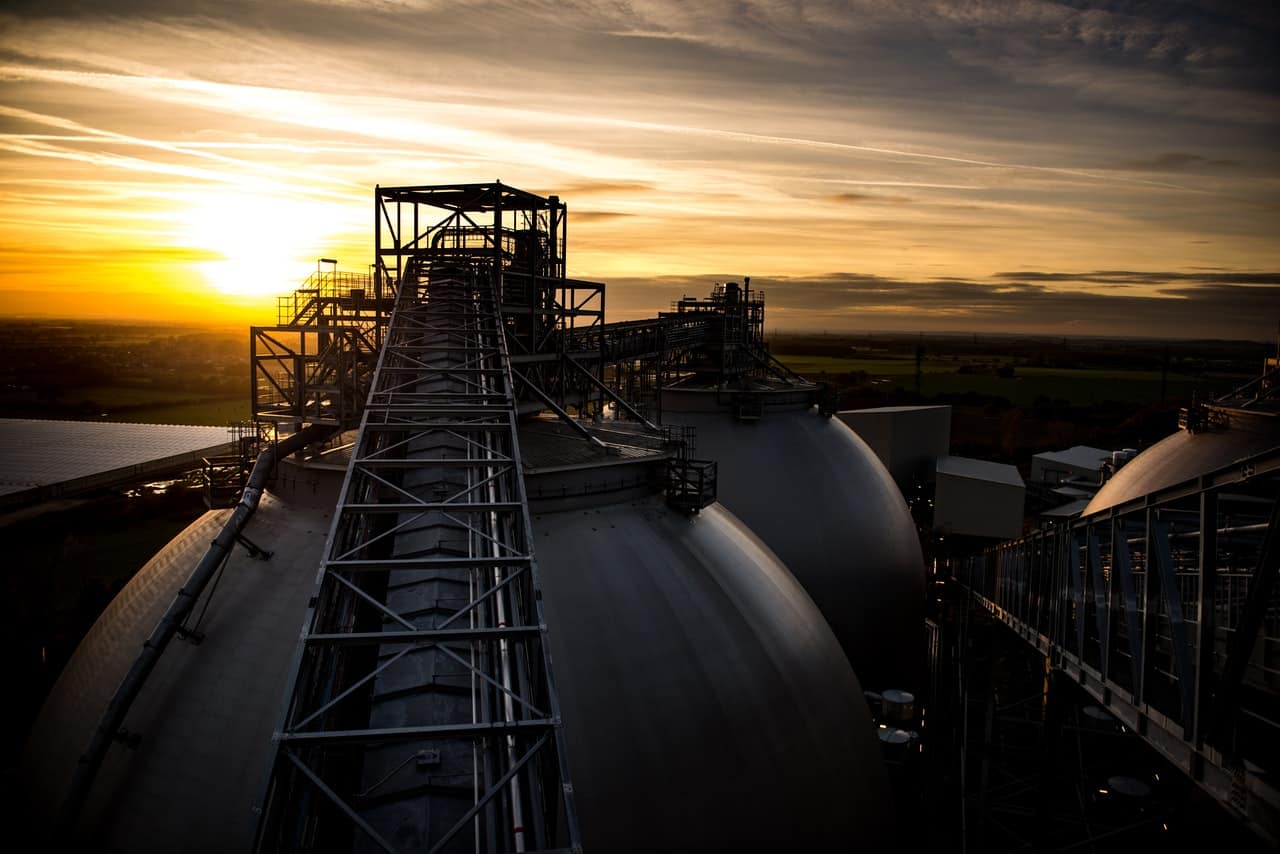Carbon Capture, Storage Garners Strong Bipartisan Support on Capitol Hill

As technology goes, it hasn’t reached the level of maturity of other methods to address climate change — like wind- or solar-energy — but carbon capture and storage has certainly caught the attention of lawmakers on Capitol Hill.
Among the bills on everybody’s radar, perhaps the biggest revolving around carbon is the Storing CO2 and Lowering Emissions Act.
The bill aims to support the development of necessary infrastructure to transport CO2 from its points of capture to where it can be either used in manufacturing or sequestered underground.
Among other things, the SCALE Act directs the U.S. Secretary of Energy to create programs for CO2 capture, transport, utilization and storage within a year of the Act passing in the House and Senate and being signed into law by the president.
“We introduced the bipartisan SCALE Act as a stand alone bill, and then we found it mentioned, by name, in the president’s American Jobs Plan,” Rep. Cheri Bustos, D-Ill., told The Well News recently.
“And that makes perfect sense, because the objectives of the American Jobs Plan — creating jobs and addressing climate change by leveraging the best science and prioritizing community engagement is what the SCALE Act is all about,” she said.
“It’s our hope that whatever happens with the ongoing negotiations between the Biden administration and the Senate, the SCALE Act will be part of the final product,” Bustos said.
In fact, Biden’s American Jobs Plan, not only includes a name check of the SCALE Act, but proposes 10 new projects to retrofit industrial facilities for carbon capture and 15 projects to demonstrate the production of low and zero-carbon hydrogen.
In the Senate, a companion version of the SCALE Act was recently introduced by Sens. Chris Coons, D- Del., and Bill Cassidy, R-La., along with several other lawmakers.
As one Senate staffer explained, at present, there are significant barriers to the wide-scale deployment of carbon capture, utilization and storage in the U.S. While other countries have made substantial investments in CO2 transport and storage infrastructure, this one area where the U.S. can truly be said to be falling behind.
A tax credit called 45Q helps incentivize carbon capture, but it is not sufficient to also drive investments in CO2 transport and storage.
Passed in 2018, the 45Q tax credit provided those who took advantage of it with a tax credit of $35 per ton of CO2 that was used in “enhanced” oil recovery, rather than the traditional mixture of water and sand.
The process is used to get the last reservoirs of oil out of nearly depleted wells. The 45Q tax credit also provided a $50 per ton credit per ton for CO2 stored underground.
“The problem with any new technology is cost,” a House staffer said, speaking on background. “That’s why the tax credit was so important — it gave the technology time to mature and allow the cost to come down naturally.”
“There’s also a chicken and egg challenge,” the Senate staffer said. “Transport and storage need to exist for carbon capture projects to be committed, but carbon capture projects need to exist to create demand for transport and storage infrastructure.”
Coons and Cassidy see the bipartisan, bicameral bills as a way to address these challenges and drive significant investments into carbon capture utilization and projects.
“Now is the time to invest in carbon capture, a promising technology with broad support,” Coons said in a statement.
The SCALE Act builds on provisions in the Energy Act of 2020 that passed in December by authorizing engineering design studies for CO2 transport, creating a carbon utilization test center, and providing carbon utilization grants for states to procure products made from captured carbon.
The bills are also an extension of an already existing Department of Energy program, CarbonSafe, which has provided numerous grants to support carbon capture research and the digging of test wells.
CarbonSafe, short for Carbon Storage Assurance Facility Enterprise, initially funded 13 project sites with the ultimate goal of ensuring carbon storage complexes could be deployed across the nation.
As time has gone on, fewer sites have advanced to subsequent stages of the program. Only four of the original 13 projects have advanced to Phase 2, including sites in Alabama, Illinois, North Dakota and Wyoming.
In addition one new project, located in New Mexico, has joined the program.
The SCALE Act would authorize increased grant funding — totaling approximately $333 million by fiscal year 2025 — for related products and programs.
But supporting the development of carbon capture projects is only the beginning, getting the technology to really take off and make a meaningful dent in the nation’s carbon emission will require building out midstream and downstream infrastructure, according to Rep. David McKinley, R- W.Va.
“For carbon capture to work, we need to be able to transport it to geologic storage or customers who can use it,” McKinley said in a statement.
He maintains the SCALE Act will enable the U.S. to take significant steps towards reducing its carbon imprint through the development of a program to support the construction of CO2 pipelines across the country.
There’s more to the support of McKinley and Rep. Liz Cheney, R-Wyo., than simply wanting to blunt the effects of climate change. They also see the technology as a way to keep coal — often the bogeyman when it comes to emission-creating energy technologies — in the nation’s energy mix for years to come.
As Cheney, who is also a cosponsor of the SCALE Act sees it, carbon capture can be expanded in ways that benefit the nation’s traditional energy producers while ensuring the continued use of her home state’s natural resources.
And if the SCALE Act does become law, McKinley, Bustos, and others say, it could be the source of thousands of well-paying jobs.
“There’s no doubt that the reason so many of us are so interested in this is the economic benefits it can provide for the communities we represent,” Bustos said.
“At the same time, our districts are well-suited to carbon capture,” she said. “For instance, the district I represent in Illinois is very rural and happens to sit atop Mount Simon Sandstone Basin, which offers a tremendous opportunity to store carbon safely underground.”
Marc Veasey, D-Texas, another cosponsor said in a statement that “carbon capture and the associated infrastructure is essential for the U.S. to reach net-zero emissions by mid-century.
“If we successfully deploy CO2 transport and storage infrastructure, we can help certain industrial sectors of our economy dramatically reduce their emissions while creating thousands of good jobs,” he said.
Bustos noted that while her district’s economy is heavily dependent on agriculture, it’s also heavy in manufacturing.
“We have 90,000 union households in the congressional district that I serve, and the SCALE Act will create even more good, union jobs as part of building out the infrastructure to move carbon from where it is collected into a geological formation underground or into some other form of storage,” she said.
“In other words, what the SCALE Act represents is our mobilizing the wealth of resources rural America has to offer in the fight against climate change while creating good-paying jobs in our communities along the way.”
The SCALE Act has garnered support of nearly 20 labor, environmental, and industry stakeholders, many of whom over a dozen labor, environmental, and industry stakeholders.
“Carbon capture remains one of the most promising clean energy technologies for the power sector, but also to improve the environmental footprint of heavy industrial processes,” said Luke Bolar, managing director of external affairs for the ClearPath Foundation, a nonprofit organization founded to accelerate clean energy without expanding the size of government.
“There has been a great deal of commercial interest and investment by Microsoft, Exxon, Oxy, and Elon Musk, to name a few, and strong policy will further establish the technology,” he said.
“The SCALE Act is a great bill, and given that it was mentioned in President Biden’s infrastructure proposal, it stands a good chance to be included in what Congress puts together,” Bolar said.
“We think there are some other important bills to help advance carbon capture technology. Particularly, there is a House Bill led by Rep. David Schweikert, R-Ariz., and Brad Wenstrup, R-Ohio, to Increase and expand the tax credit for Carbon Oxide Sequestration (H.R. 2633)
“There are a few additional bills in both the House and Senate that will extend or expand the 45Q credit, but the Schweikert/Wenstrup bill, in particular, would provide longer term certainty for carbon capture projects, decrease the minimum volumetric capture and utilization thresholds, and match the credit value with the cost of more difficult to capture sources. Policies like this are needed to complement and work with commercialization efforts,” Bolar said
Read the full text of the bill here. A fact sheet can be found here.
The full list of U.S. Senators who have cosponsored the legislation are Tina Smith, D-Minn., John Hoeven,R-N.D., Sheldon Whitehouse, D-R.I., Shelley Moore Capito, R-W. Va., Tammy Duckworth, D-Ill., Mike Braun, R-Ind., Jon Tester, D-Mont., Lisa Murkowski, R-Alaska, and Joe Manchin, D-W.Va..
In the House, additional cosponsors include Pete Stauber, R-Minn., and Terri Sewell, D-Ala.























